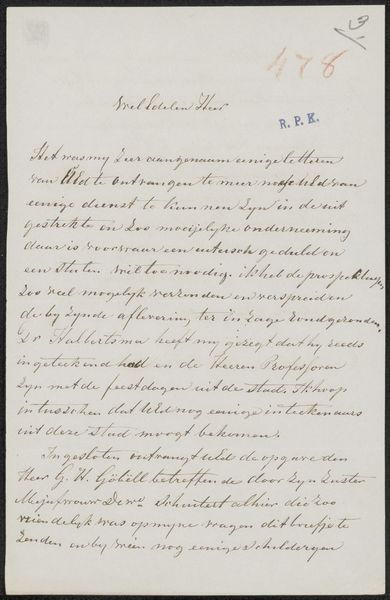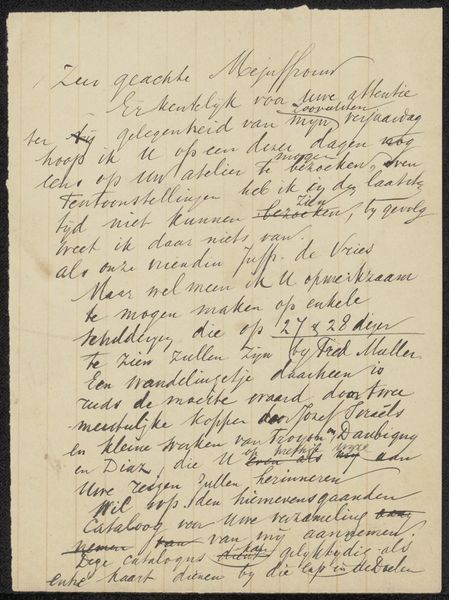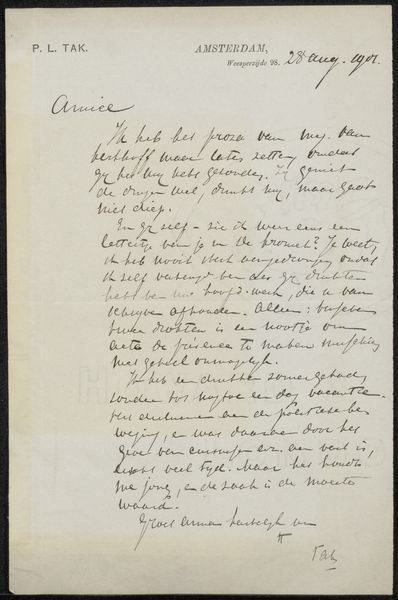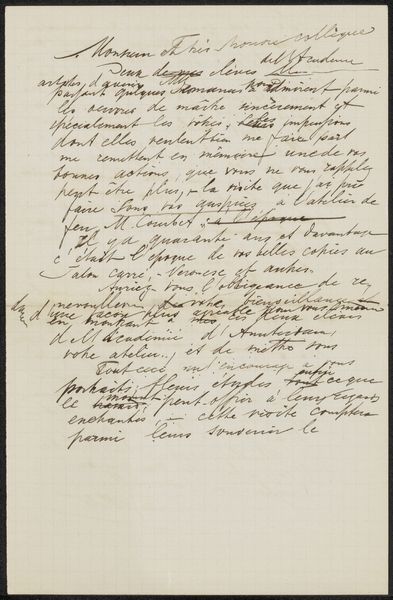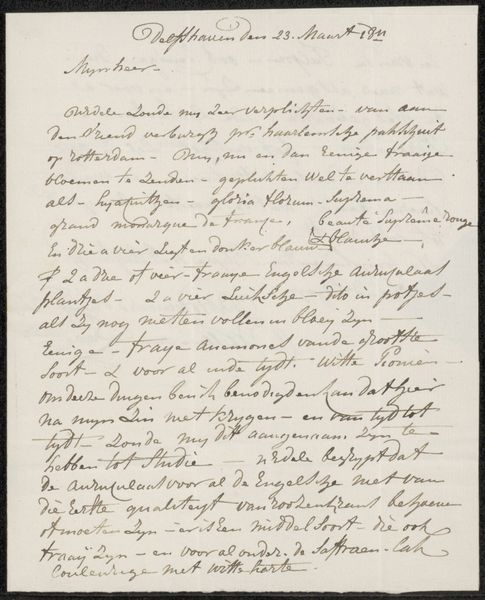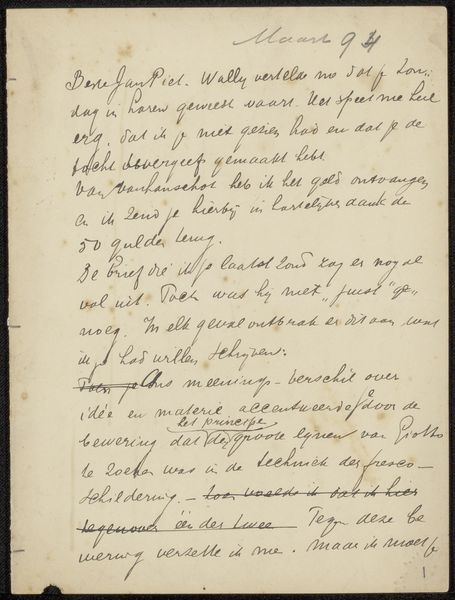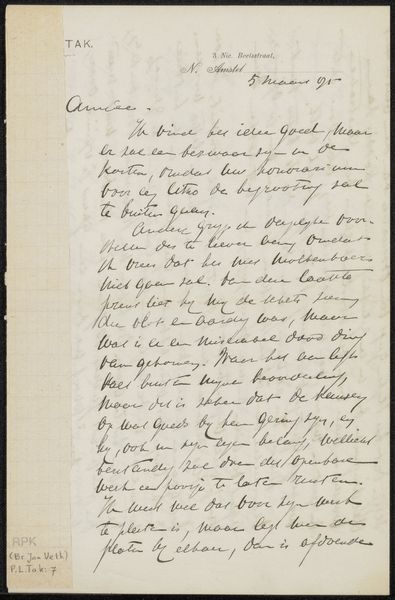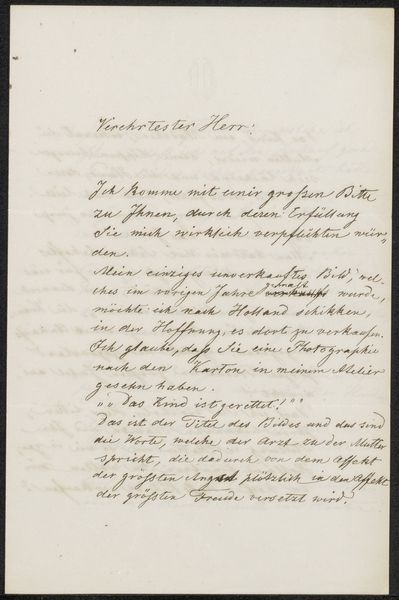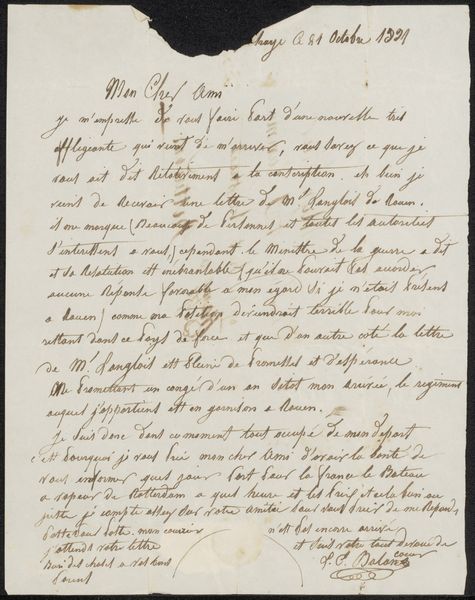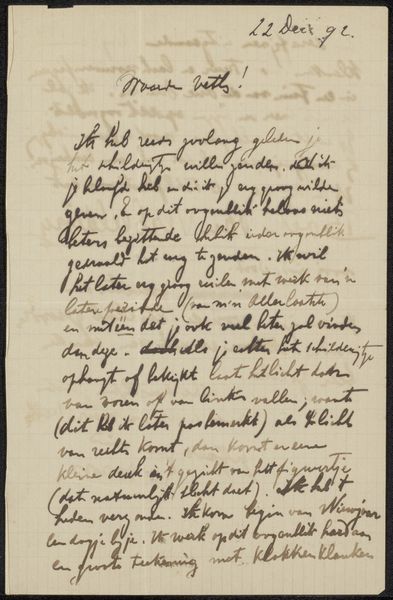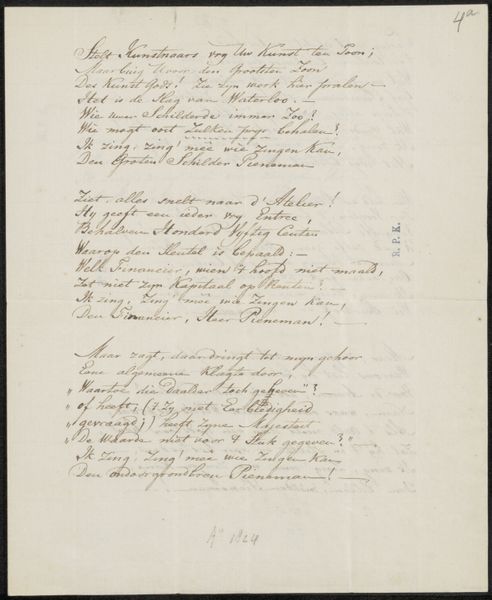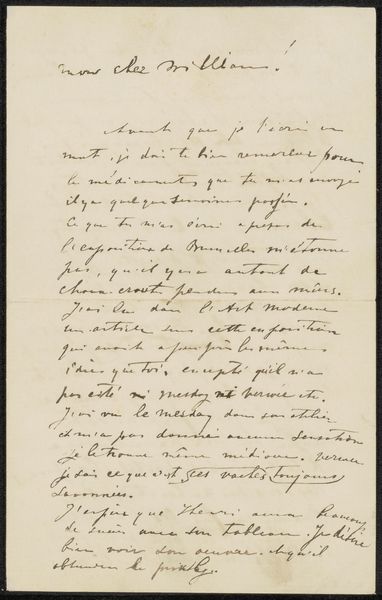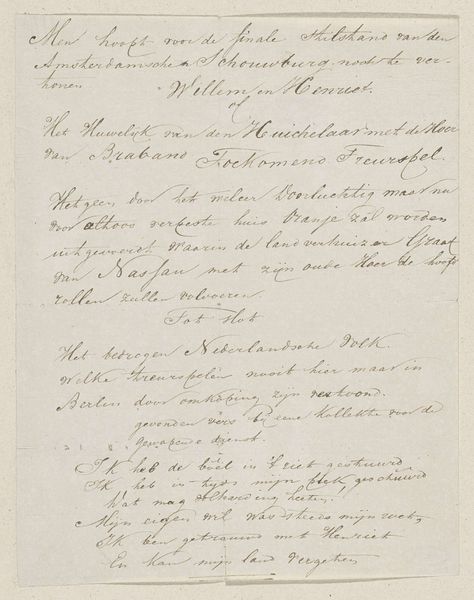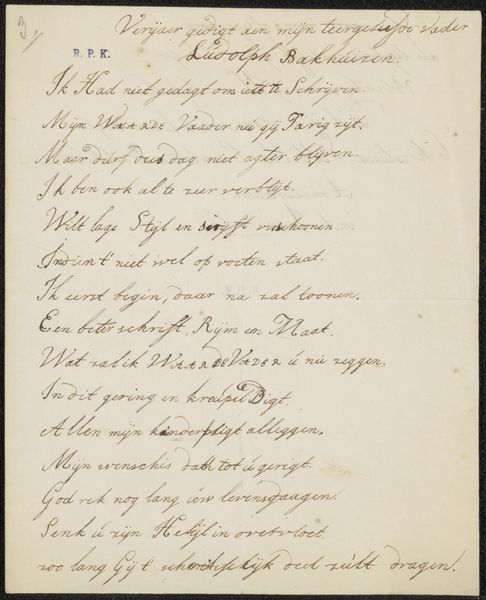
drawing, textile, paper, ink
#
drawing
#
textile
#
paper
#
ink
#
romanticism
#
calligraphy
Dimensions: height 203 mm, width 175 mm
Copyright: Rijks Museum: Open Domain
In 1806, Samuel Iperusz Wiselius created "Blad met twee verzen op het vaderland," a poignant handwritten poem reflecting the turbulent times of the Netherlands under foreign influence. Wiselius, a man of the Enlightenment, was deeply involved in the political and intellectual life of his time. The poem is a direct response to the Batavian Republic's era, a period of French influence in the Netherlands. Wiselius invokes the image of a nation yearning for freedom, addressing themes of oppression, resilience, and the hope for renewed glory. The verses convey a longing for the past greatness of the Netherlands, appealing to a sense of national pride and resistance against foreign domination. The emotional weight of the poem lies in its appeal to a collective identity, invoking a shared history and destiny. Wiselius captures the people's deep sense of cultural and political identity during a time of immense upheaval. He expresses the hope that the nation will rise again, filled with new spirit and gratitude, giving honor to whom it is due.
Comments
No comments
Be the first to comment and join the conversation on the ultimate creative platform.
